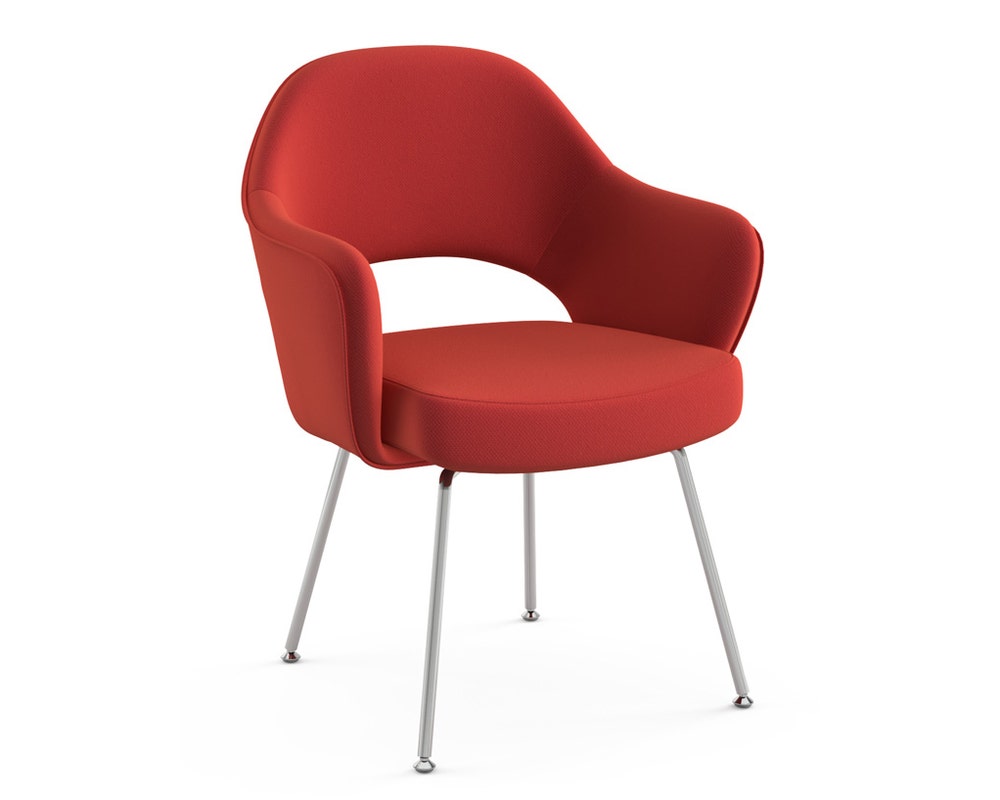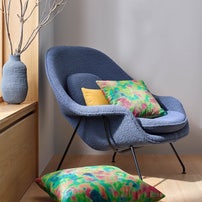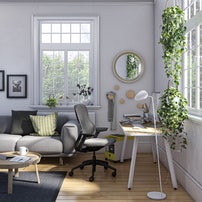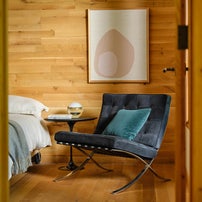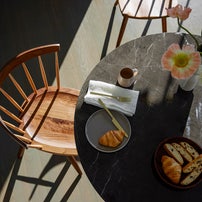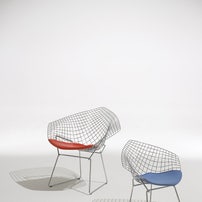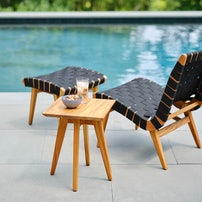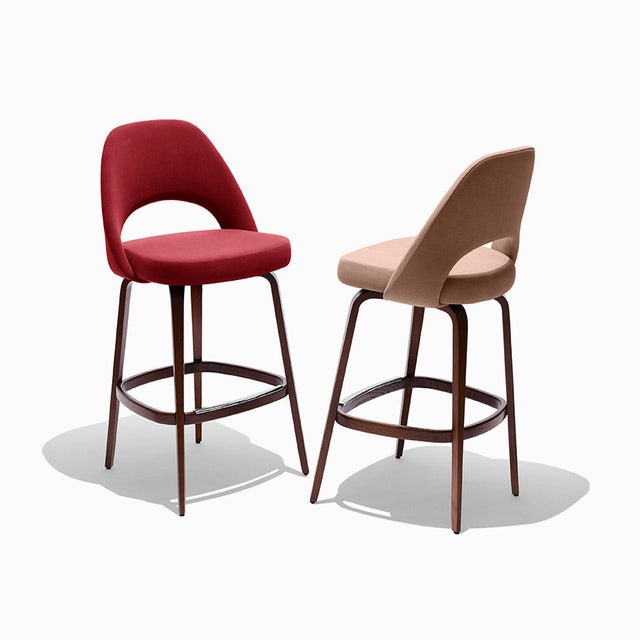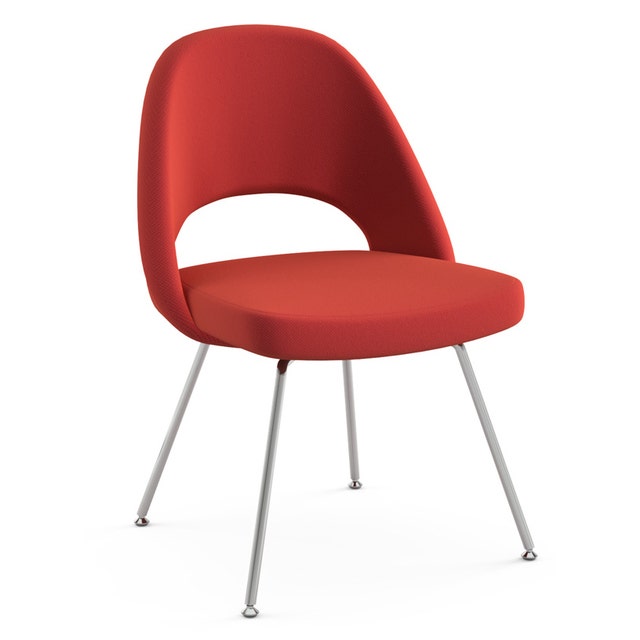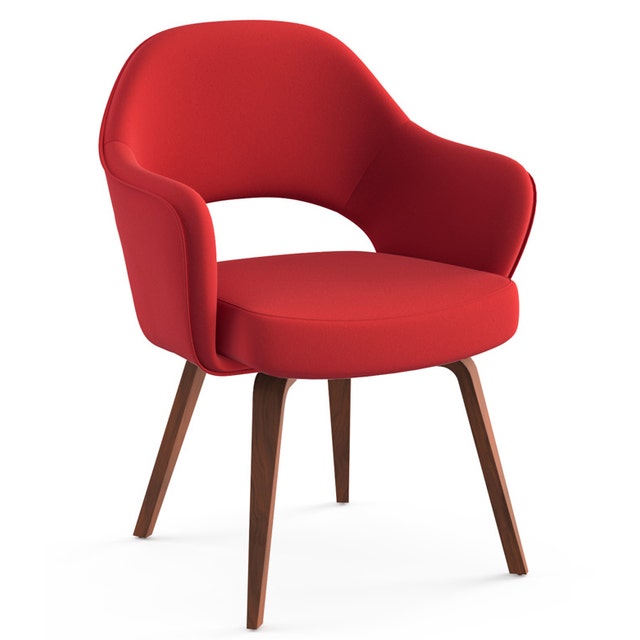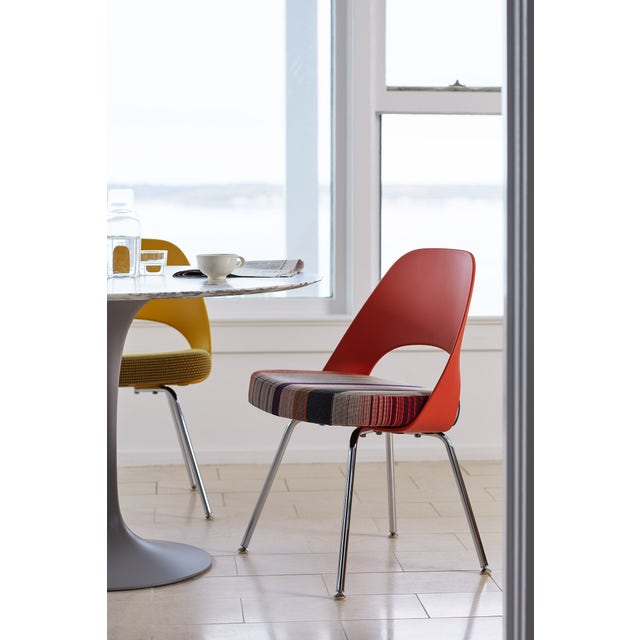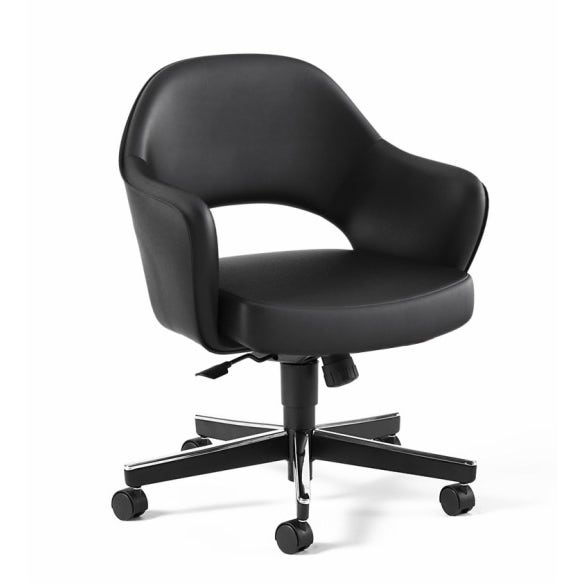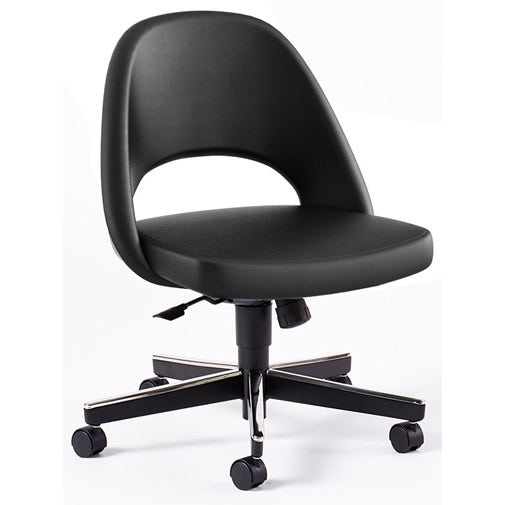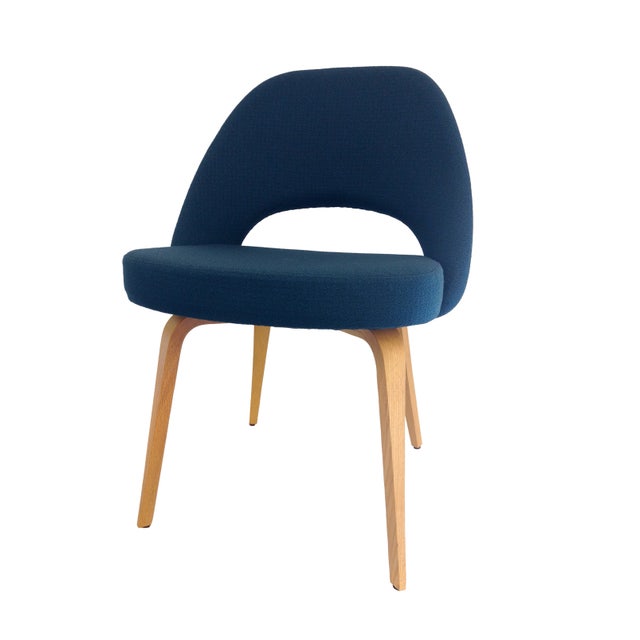Knoll Saarinen - Executive Arm Chair with Tubular Legs
After winning the Museum of Modern Art Organic Design Competition with Charles Eames for their experiments with bent plywood in 1941, Eero Saarinen was eager to continue exploring the possibilities of a chair that achieved comfort through the shape of its shell, not the depth of its cushioning. Initially, he began the investigation with designs for smaller fiberglass task chairs, but changed direction when Florence Knoll approached him and asked, "Why not take the bull by the horns and do the big one first? I want a chair that is like a basket full of pillows…something I can curl up in.” While that’s not exactly where Saarinen ended up, the suggestion inspired one of the most iconic, and comfortable, chairs of the modern furniture movement.
Like many of Saarinen’s furniture designs, the Womb Chair required production techniques and materials still in the infancy of their existence. Saarinen and Florence Knoll found a boat builder in New Jersey who was experimenting with fiberglass and resin to help develop manufacturing methods for the new chair. Florence Knoll: “He was very skeptical. We just begged him. I guess we were so young and so enthusiastic he finally gave in and worked with us. We had lots of problems and failures until they finally got a chair that would work."
Featured in nearly all Florence Knoll-designed interiors, the Saarinen Executive Chair has remained one of our most popular designs for nearly 70 years. The design, which is now found in dining rooms as often as it is in offices, transformed the notion of what executive seating could be with its sculptural form and modern finishing
MEASUREMENTS:
- Width: 66 cm / 26 inch
- Depth: 62.4 cm / 24.5 inch
- Height: 80 cm / 31.5 inch
- Seat Height: 45.7 cm / 18 inch
MATERIALS:
- Molded reinforced polyurethane back shell with a contoured plywood seat form
- Steel legs are seamless tubular steel with polished chrome finish or black paint
HELPFUL NOTES:
- The seat and back may be specified with split upholstery, please contact us to order that option
- The chair may be specified with contrasting leather welts, please contact us to order that option

Eero Saarinen
Finland, 1910 – 1961
Eero Saarinen, was born in 1910 in Finland and in 1923 the family emigrated to the US. He studied architecture at Yale, graduating in 1934. A Yale scholarship enabled Saarinen to travel to Europe but he returned to the US in 1936 to work in his father’s architectural practice. When his father died in 1950, Eero Saarinen took over the practice. Saarinen taught at Cranbrook Academy where he met Charles Eames in the late 1930s. Experimenting with Eames, Eero Saarinen co-developed new furniture forms and the first designs for furniture made of molded, laminated wood. In 1940 Saarinen and Eames took part in the “Organic Design in Home Furnishings” competition mounted by the Museum of Modern Art in New York.
For Knoll International Saarinen designed a great many pieces of furniture, including the 1948 Womb Chair, which was designed to make those seated in it feel as secure and cozy as a fetus in the womb. The Pedestal Group, dating from 1955-56, is collection of chairs and tables made of plastic and featuring only one central leg ending organically in a round disc on the floor. The very successful Tulip Chair belonged to this group. Eero Saarinen says he wanted to abolish the “miserable maze of legs.” In 1951 he designed the Saarinen Collection for Knoll, consisting of the still popular line of Executive Chairs. These chairs transformed the notion of what executive seating could be with its sculptural form and modern finishings.

Knoll has lived their guiding principle, "good design is good business," since 1938. Products are all created to inspire, fit, and last. The Bauhaus philosophy that furniture should complement, not compete with architecture, is central to Knoll’s design. Its extensive portfolio includes office work systems, residential mid-century modern classics, textiles, and accessories.
Designers like Harry Bertoia, Eero Saarinen, Warren Platner, Isamu Noguchi, and Florence Knoll contributed to Knoll’s iconic designs. Knoll invests in research and field studies and explores organizational behavior and technology to ensure quality excellence. As a leader in sustainability, Knoll’s practices reduce waste and conserve resources. Based in Pennsylvania, Knoll has a strong international presence, and 40 products are in the permanent collection of the Museum of Modern Art in New York.
Knoll products incur a 7.5% shipping charge at checkout, with a minimum of $85 and maximum of $500. This fee reflects White Glove Delivery for large items, which includes bringing the item to your room of choice, unpacking, removal of packaging, and assembly.
For further information on our shipping policies click here.
For further information on returns + refunds click here.

